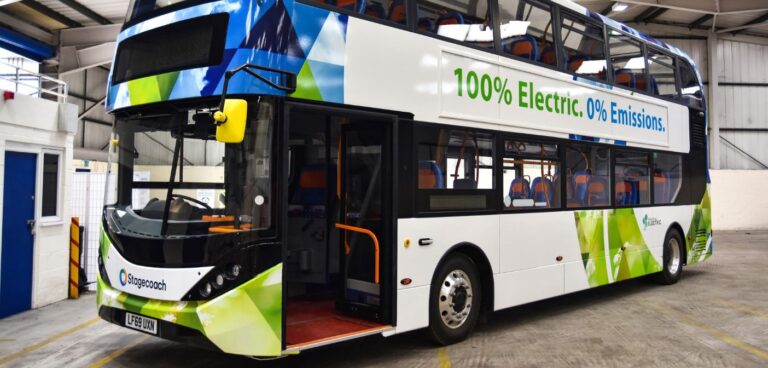Stagecoach has confirmed plans to increase its electric bus fleet by more than 80% in the next 12 months as part of a longer-term goal of becoming a net zero business.
The announcement comes after the bus and coach operator published a report outlining progress in 2021/22 against the strategy it launched in 2021, Driving Net Zero: Better Places to Live and Work.
The report details a programme of improvements delivered in 2021-2022 against its ‘Planet, People, Prosperity and Governance’ targets.
It includes a package of capital investment in new cleaner buses, measures to improve energy efficiency as well as improvements and investment for Stagecoach employees and local communities.
As part of its plans to target a zero-emission UK bus fleet by 2035, Stagecoach has introduced electric buses across different parts of the country, including one of Europe’s biggest investments in electric buses in Manchester.
This includes increasing its electric bus fleet from 184 buses to 343 in the next year, representing an increase of 86%. The company will also launch the first all-electric city bus networks in the UK in Inverness and Perth in 2023.
Greg Ritt, head of sustainability for Stagecoach, said: “Despite the challenging macro-economic environment, and the specific pressures that are being faced in the public transport sector, as the country’s biggest bus and coach operator, Stagecoach is continuing to play a leading role in decarbonising the sector and we are working hard towards our target to become a net zero business by 2050.”
In addition to introducing a further 159 electric buses next year, Stagecoach will also run 10 hydrogen buses in Liverpool from spring 2023, operated through a partnership between Stagecoach, Liverpool City Region Combined Authority and Arriva.





